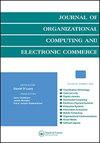DEEP LEARNING-BASED CUSTOMER COMPLAINT MANAGEMENT
IF 1.9
4区 管理学
Q3 COMPUTER SCIENCE, INFORMATION SYSTEMS
Journal of Organizational Computing and Electronic Commerce
Pub Date : 2022-10-02
DOI:10.1080/10919392.2023.2210049
引用次数: 0
Abstract
ABSTRACT In recent years, managing customer complaints poses a problem for companies due to the increasing market and customer base. One of the most effective ways to speed up the handling of complaints is to categorize customer issues and automatically forward complaints to relevant officers or departments. This reduces the response time to complaints and ensures that specific complaints are being handled by the people with the right expertise. Also, the companies can create a strategy exclusively for certain types of problems, which will hasten the problem resolution. In this article, we propose an intelligent customer complaint management system (CCMS) for financial services organizations. We described a pre-processing technique for Turkish agglutinative language using deep learning algorithms and it was not previously considered in the literature. Furthermore, the performance of the algorithm has been significantly increased by choosing the appropriate combinations of pre-processing tasks. The proposed method not only greatly increases text classification’s utility for a broader range of customer complaints, but it also yields improved overall performance, recorded with a 96% accuracy score. The findings of the experiments show that the proposed approach is more effective than the other state-of-the-art strategies.基于深度学习的客户投诉管理
摘要近年来,由于市场和客户群的不断扩大,管理客户投诉给公司带来了一个问题。加快处理投诉的最有效方法之一是对客户问题进行分类,并自动将投诉转发给相关官员或部门。这减少了对投诉的响应时间,并确保特定投诉由具有适当专业知识的人员处理。此外,这些公司可以专门针对某些类型的问题制定策略,这将加快问题的解决。在本文中,我们提出了一个用于金融服务组织的智能客户投诉管理系统(CCMS)。我们描述了一种使用深度学习算法对土耳其语粘性语言进行预处理的技术,以前文献中没有考虑过这种技术。此外,通过选择适当的预处理任务组合,算法的性能得到了显著提高。所提出的方法不仅大大提高了文本分类在更广泛的客户投诉中的实用性,而且还提高了整体性能,准确率为96%。实验结果表明,所提出的方法比其他最先进的策略更有效。
本文章由计算机程序翻译,如有差异,请以英文原文为准。
求助全文
约1分钟内获得全文
求助全文
来源期刊

Journal of Organizational Computing and Electronic Commerce
工程技术-计算机:跨学科应用
CiteScore
5.80
自引率
17.20%
发文量
7
审稿时长
>12 weeks
期刊介绍:
The aim of the Journal of Organizational Computing and Electronic Commerce (JOCEC) is to publish quality, fresh, and innovative work that will make a difference for future research and practice rather than focusing on well-established research areas.
JOCEC publishes original research that explores the relationships between computer/communication technology and the design, operations, and performance of organizations. This includes implications of the technologies for organizational structure and dynamics, technological advances to keep pace with changes of organizations and their environments, emerging technological possibilities for improving organizational performance, and the many facets of electronic business.
Theoretical, experimental, survey, and design science research are all welcome and might look at:
• E-commerce
• Collaborative commerce
• Interorganizational systems
• Enterprise systems
• Supply chain technologies
• Computer-supported cooperative work
• Computer-aided coordination
• Economics of organizational computing
• Technologies for organizational learning
• Behavioral aspects of organizational computing.
 求助内容:
求助内容: 应助结果提醒方式:
应助结果提醒方式:


